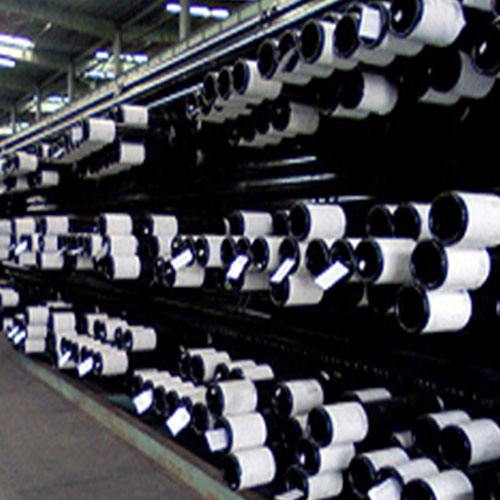Benefits of Using Slip-Type casing Hanger in wellhead Components
Wellhead components are essential elements in Oil and gas drilling operations, providing support and sealing functions for the casing strings that are run into the wellbore. Among the various components used in a wellhead system, casing hangers play a crucial role in supporting the weight of the casing string and providing a seal between the casing and the wellhead. There are two main types of casing hangers commonly used in wellhead systems: slip-type casing hangers and mandrel-type casing hangers.
Slip-type casing hangers are designed to support the weight of the casing string by gripping the outside diameter of the casing. these hangers consist of slips that are set into the casing hanger body, which are then activated to grip the casing when weight is applied from above. This design allows for easy installation and removal of the casing string, as the slips can be easily released when needed. Slip-type casing hangers are commonly used in both onshore and offshore drilling operations due to their simplicity and reliability.
One of the key benefits of using slip-type casing hangers in wellhead components is their versatility. Slip-type hangers can accommodate a wide range of casing sizes, making them suitable for various wellbore conditions and drilling operations. This flexibility allows operators to use the same casing hanger design for multiple wells, reducing the need for specialized equipment and simplifying inventory management.

In addition to their versatility, slip-type casing hangers also offer improved load-bearing capacity compared to mandrel-type hangers. The slip design allows for a larger contact area between the casing and the hanger body, distributing the weight more evenly and reducing the risk of casing deformation or failure. This increased load-bearing capacity makes slip-type hangers ideal for deepwater drilling operations or wells with high pressure and temperature conditions.
stainless steel Oil TubeAnother advantage of using slip-type casing hangers is their ease of maintenance and repair. The slips can be easily replaced or adjusted as needed, allowing for quick and cost-effective repairs in the event of wear or damage. This reduces downtime and improves operational efficiency, ensuring that drilling operations can resume quickly without compromising safety or integrity.
Furthermore, slip-type casing hangers are designed to provide a reliable seal between the casing and the wellhead, preventing fluid migration and maintaining well integrity. The slips are typically equipped with elastomeric seals or metal-to-metal seals to ensure a tight seal under high pressure and temperature conditions. This sealing capability is essential for preventing leaks and maintaining well control during drilling and production operations.
Overall, slip-type casing hangers offer a range of benefits that make them a preferred choice for wellhead components in oil and gas drilling operations. Their versatility, load-bearing capacity, ease of maintenance, and sealing capabilities make them an ideal solution for a wide range of wellbore conditions and drilling environments. By choosing slip-type casing hangers for wellhead components, operators can ensure safe and efficient drilling operations while minimizing downtime and maintenance costs.
Comparison Between Mandrel Type and Slip-Type Casing Hangers in Wellhead Systems
Wellhead components play a crucial role in the oil and gas industry, as they provide support and sealing for the casing strings in a well. Two common types of casing hangers used in wellhead systems are slip-type and mandrel type. While both serve the same purpose of supporting the casing string, there are key differences between the two that can impact their performance and suitability for different applications.
Slip-type casing hangers are designed with slips that grip the casing string when weight is applied from above. This design allows for easy installation and removal of the casing string, making it a popular choice for temporary or exploratory wells. The slips can be easily adjusted to accommodate different casing sizes, providing flexibility in well design. However, slip-type casing hangers may not provide as secure of a grip on the casing string compared to mandrel type hangers, which can lead to issues with casing integrity and well stability.
On the other hand, mandrel type casing hangers feature a mandrel that is inserted into the casing string and expands to create a tight seal. This design offers a more secure grip on the casing string, reducing the risk of casing movement or failure. Mandrel type hangers are often used in high-pressure or high-temperature wells where casing integrity is critical. However, the installation and removal of mandrel type hangers can be more complex and time-consuming compared to slip-type hangers, which may not be suitable for all well applications.
oil line heating services keighley
oil Pipe men stuckIn terms of cost, slip-type casing hangers are generally more affordable than mandrel type hangers due to their simpler design and ease of installation. This makes slip-type hangers a cost-effective option for wells where casing integrity is not a primary concern. Mandrel type hangers, on the other hand, are typically more expensive but offer greater reliability and security for wells where casing integrity is a top priority.
When it comes to maintenance and repair, slip-type casing hangers are easier to inspect and replace compared to mandrel type hangers. The slips in slip-type hangers can be easily inspected for wear and tear, and replaced as needed to ensure proper gripping of the casing string. Mandrel type hangers, on the other hand, require more specialized tools and expertise for inspection and repair, which can increase maintenance costs and downtime for the well.
In conclusion, both slip-type and mandrel type casing hangers have their own advantages and disadvantages, and the choice between the two will depend on the specific requirements of the well. Slip-type hangers offer ease of installation and cost-effectiveness, making them suitable for temporary or exploratory wells. Mandrel type hangers provide a more secure grip on the casing string and are ideal for high-pressure or high-temperature wells where casing integrity is critical. Ultimately, the selection of casing hangers should be based on a thorough evaluation of the well conditions and requirements to ensure optimal performance and safety.
